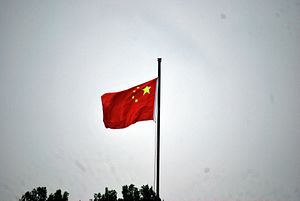On June 22 and 23, the Chinese Communist Party (CCP) leadership held an extremely high level meeting on China’s foreign policy — the Central Conference on Work Relating to Foreign Affairs — in Beijing.
According to China’s state news agency, Xinhua, Xi Jinping presided over the meeting in the name of his three top posts: general secretary of the CCP, chairman of the Central Military Commission, and president of the nation.
Accordingly, the attendees at this meeting included all the top leaders in the Party, the military, and the state, including the entire Politburo Standing Committee of the CCP, the top officials of all state departments, military high officials, and nearly all Chinese ambassadors.
This was the second such meeting since Xi took office, following one in 2014. In comparison, Hu Jintao, Xi’s predecessor, held only once such meeting in 2006, and on a much smaller scale.
It’s particularly worth noting that this meeting was held at a moment when the tensions on trade as well as security between the United States and China are significantly rising. However, according to Xinhua’s 3,000-plus-word statement, Xi didn’t mention the United States — or any other country — by name.
Instead, in his lengthy address, Xi repeatedly emphasized the Party Central Committee’s absolute control over China’s foreign policy. He said:
Diplomacy is a concentrated manifestation of the state’s will. [We must] maintain the great power over foreign policy in the Central Committee’s hands… [We must] firmly uphold the unified leadership of the Central Committee and consciously be consistent with the Central Committee on ideology and on action. Foreign affairs work is a systematic project. The Party, the government, the People’s Congress, the political consultative conferences, the military, the local government, and the civil society must all cooperate accordingly… so as to form a situation in which the Party holds the overall authority, while the others coordinate.
Xi further set the tone for China’s diplomacy moving forward. Among many goals, Xi vowed to “firmly safeguard China’s sovereignty, security, and development interests” and “take an active part in leading the reform of the global governance system, and build a more complete network of global partnerships.”
“China has been in the best period of development since modern times, while the world is undergoing the most profound and unprecedented changes in a century,” Xi added.
Xi also highly praised China’s diplomatic achievements, claiming that China has “overcome many risks, won several hard and big battles, cracked many hard nuts and made achievements of historic significance” since he took office after the CCP’s 18th National Congress in 2012.
Despite such great achievements, Xi still sent a mild warning. He urged all officials not to “get lost in the complex and changing international situation” but to “have a clear understanding of China’s status and role in the evolving world pattern.”
By the end of this meeting, Yang Jiechi, director of the Office of the Foreign Affairs Commission of the CCP Central Committee, concluded that the most important outcome of this conference is that Xi’s thought has been established as the “fundamental guideline” for China’s foreign policy.

































